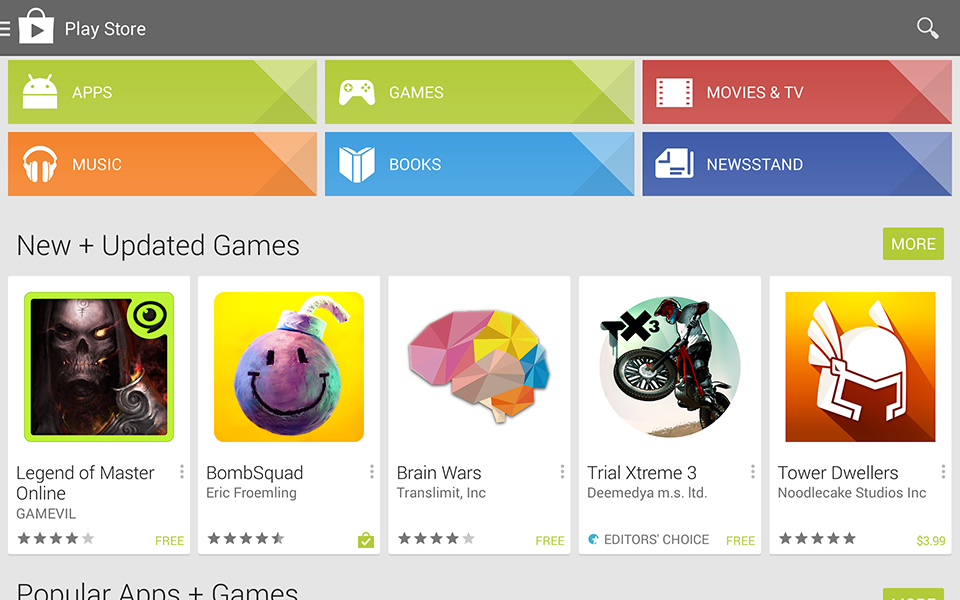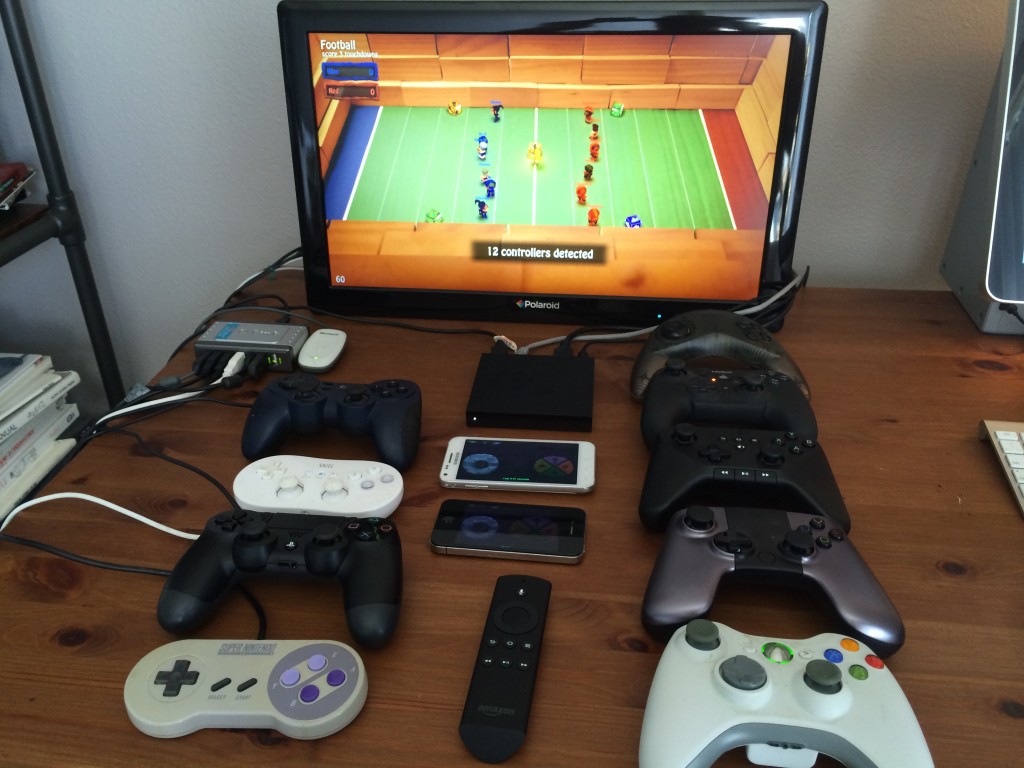I wanted to ramble a bit on this topic since it has been (and continues to be) quite a learning-experience for me. Perhaps this will be useful for other developers to hear.
Last year, in preparation for releasing BombSquad on Google Play, I switched the game from paid to free on all platforms. This is something I had long been planning on doing once the pieces were in place (in-game store, tournaments, etc.), so it seemed like a good time to take the plunge.
As developers, we all hear about how F2P is the future, and admittedly everyone’s mouth waters a bit when they read SuperCell’s latest earnings report, but from my perspective there were several less-obvious incentives to going free as well. One of these was exposure. Being a solo dev with no marketing department, I liked the idea of eliminating the barrier-to-entry for new players. I’d rather someone try my game and not pay for it than not try it at all due to it’s price tag; especially as it becomes harder and harder to stand out in the crowd. I also liked the idea of potentially being able to support myself by adding to the game over time instead of being forced to abandon it once the rate of new users slowed. I started writing BombSquad 10 years ago as a hobby and still love adding to it, so anything that lets me continue doing that (while also continuing to buy groceries) is good by me.
Of course going free is a little scary as well. There is the potential to torpedo player goodwill with over-aggressive monetization, pay-to-win mechanics, or excessive pay-walls. There is also the other end of the spectrum where the game gives players little reason to spend, in which case your game won’t make money regardless of how popular or well-received it is.
But free doesn’t have to mean evil. It can work well, and I wanted to try it. So I did.
It’s now been a bit over 6 months since I flipped the switch to free, and in this time I’ve learned just how tricky it can be to find a comfy spot in the center of those two extremes. I’ve also gotten inch by inch closer to said comfy spot. If I were to go back in time a year to give my past-self advice, this would be it:
- Keep in mind that free-to-play is a *lot* of work, especially adapting an existing game not explicitly designed for it. If you are a solo developer or a small team and you just want to focus on gameplay, carefully consider whether the extra time wiring up IAPs, balancing economies, and incentivizing players to purchase is worth the extra effort vs. simply releasing a paid game.
- Give yourself plenty of time for tuning purchases. Don’t slap a few unlockables in a week or two before release and expect amazing things. Consider a lengthy soft-launch.
- Incentivized ads are worth looking into, and provide a safety net in case your IAPs are ineffective.
- Play F2P games. This seems obvious, but I am guilty of not doing this nearly enough before I switched BombSquad over. I knew all the F2P concepts ‘on paper’ but until recently I feel like I had not played enough to really ‘get’ them. A recent Boom Beach binge worked wonders for this. The best games don’t kick you in the face; they’re fun without purchasing but just a *bit* more so if you do. If I were starting over converting BombSquad to free today I would definitely rethink a few things.
- Lastly, get down and dirty with analytics. When I am balancing a game I tend to do it more by ‘feel’ than by numbers, but when it comes to virtual currencies and economies it really helps to crunch the data. On this topic, I’d like to give a shout out to the folks at Google who are going to be rolling out their new Player Analytics features in the developer console in the next few days which makes a lot of this easier for mere mortals like myself. I’ve been fortunate to get to work with them in recent months as they’ve been putting it together, and it’s been quite helpful in identifying and correcting shortcomings in my in-game economy. As a particular example, their sources & sinks report showed that most players were easily earning more tickets in the game than they were able to spend, meaning few had any incentive to purchase ticket-packs. Adjusting my numbers to bring these two back in line had a substantial positive effect on my revenue and put the game on much more sound financial ground. So if you’ve got a game on Google Play, integrate Play game services and give Player Analytics a whirl. Yay for buying groceries!


